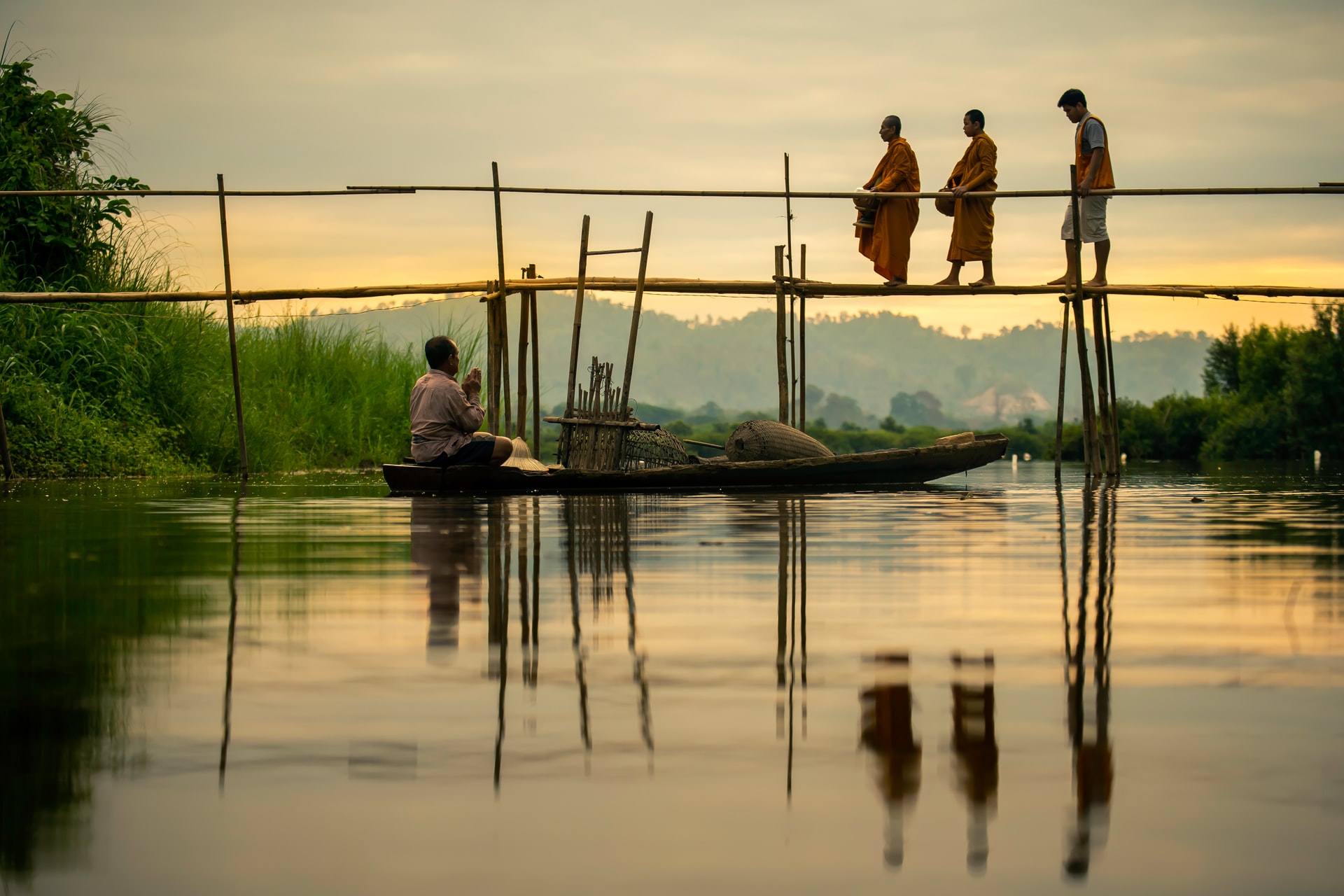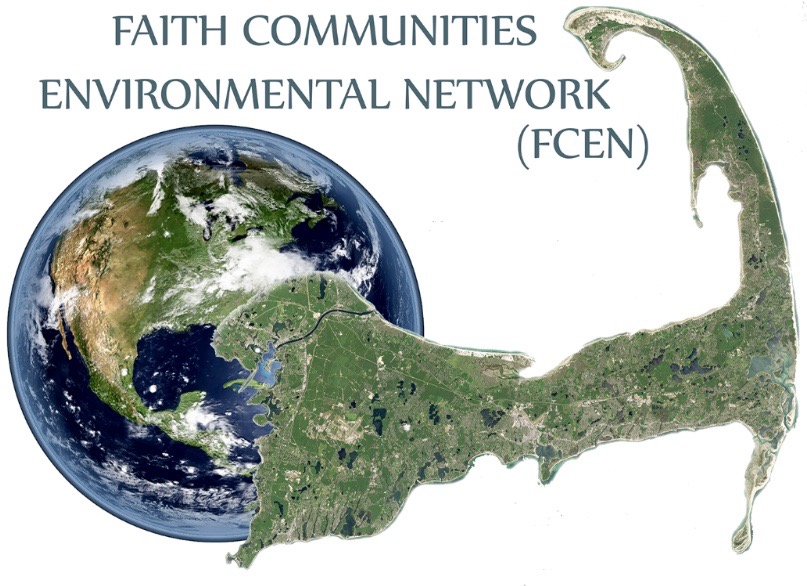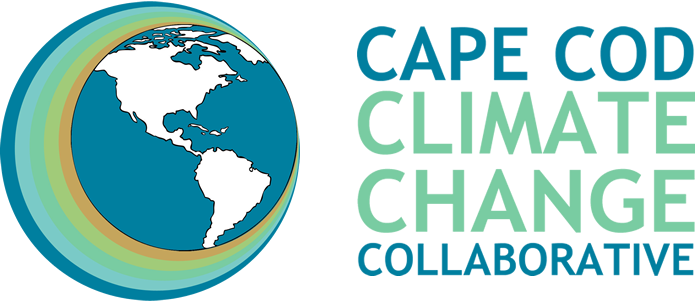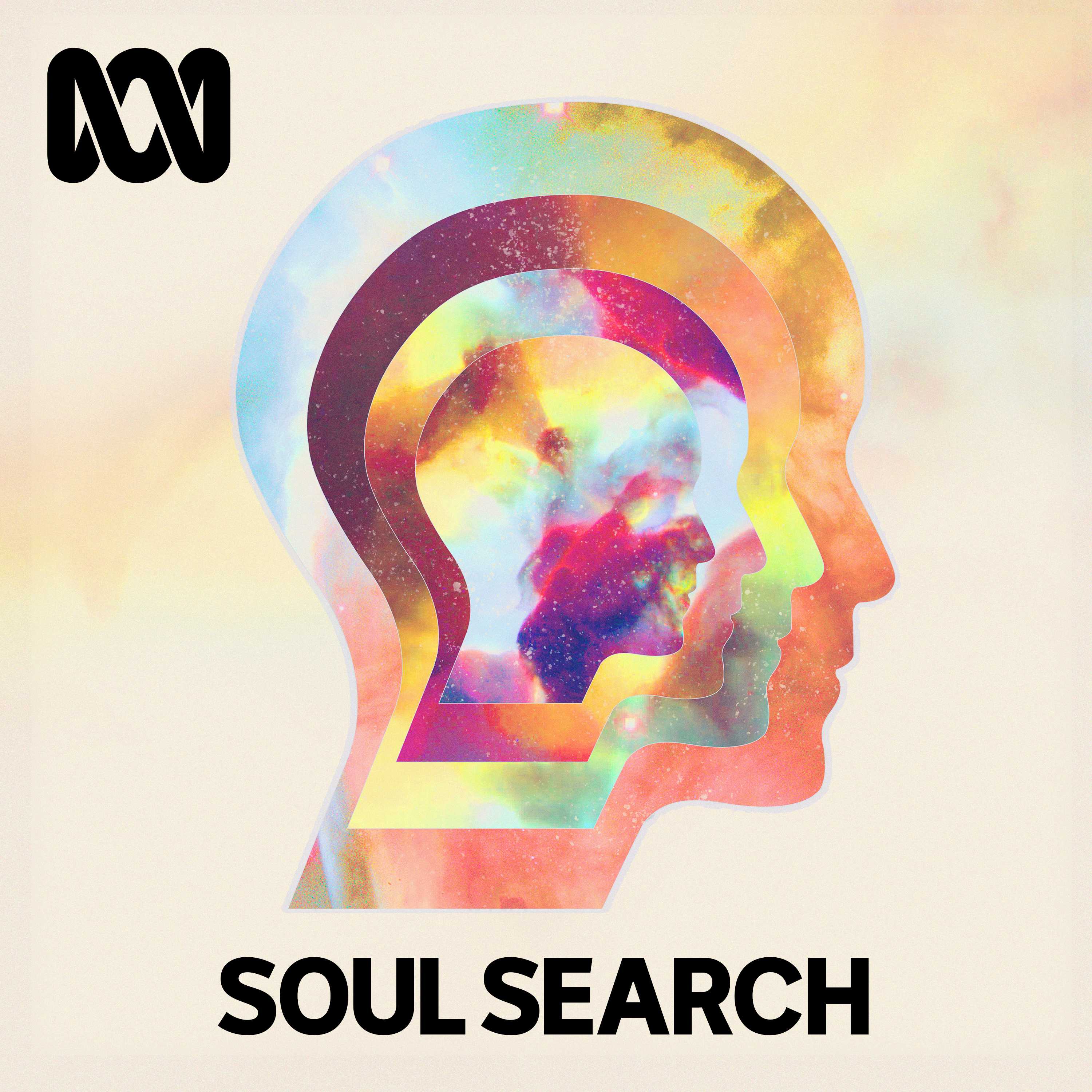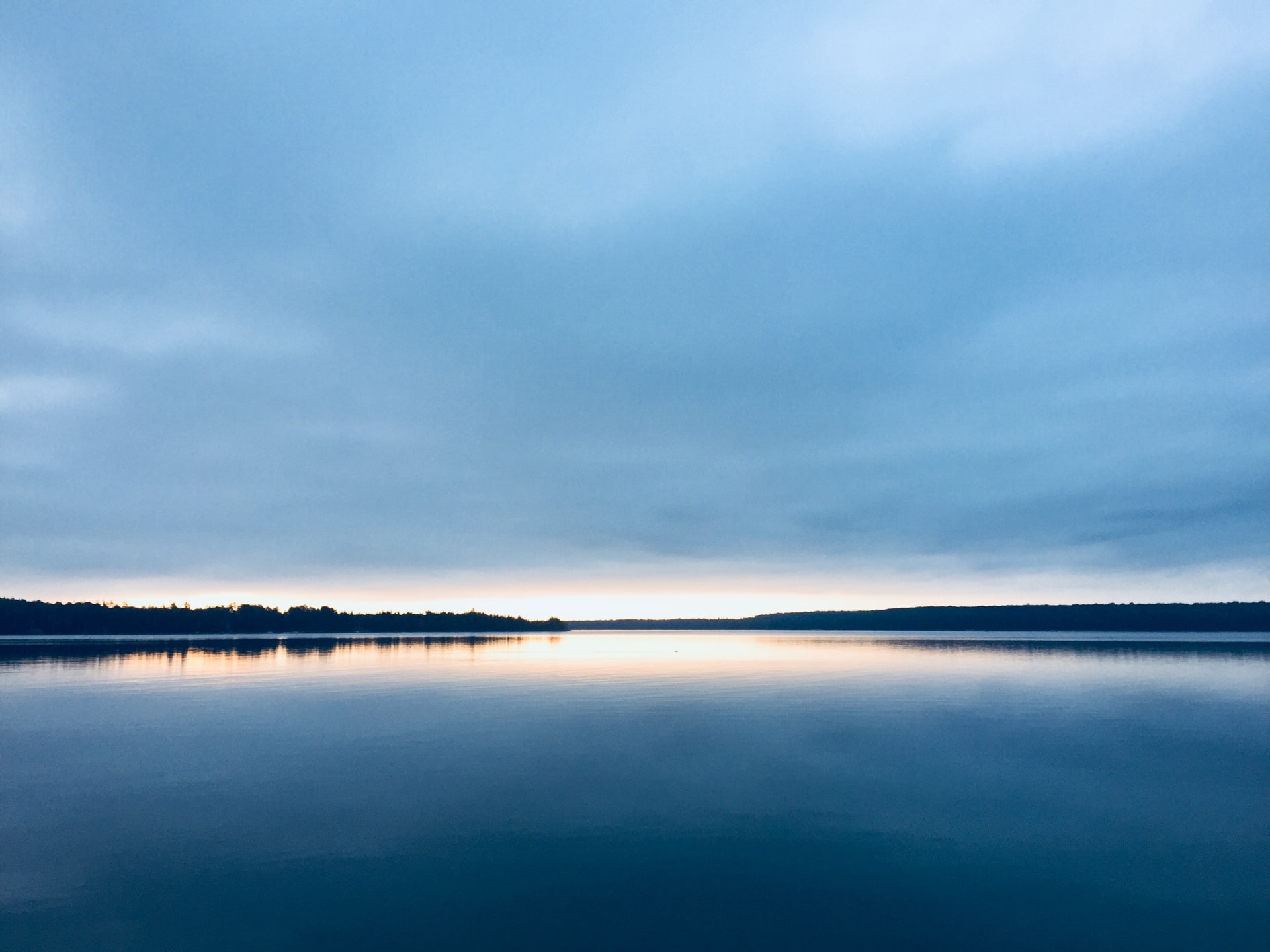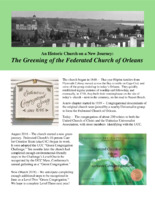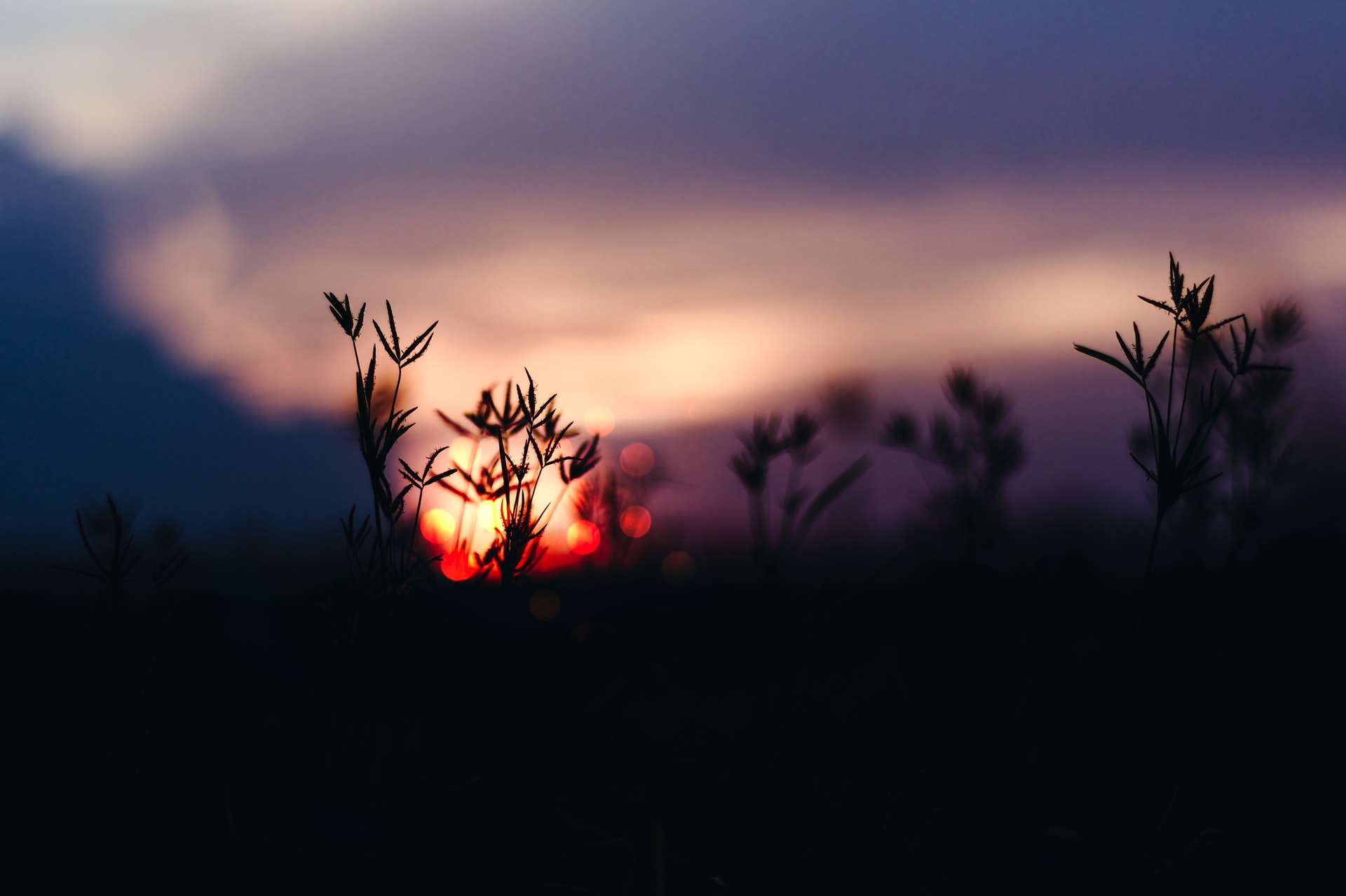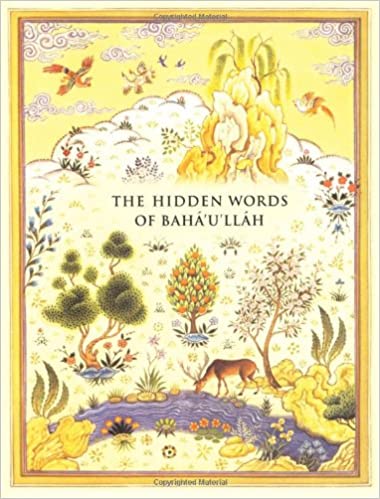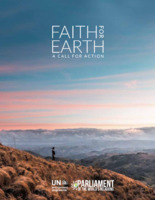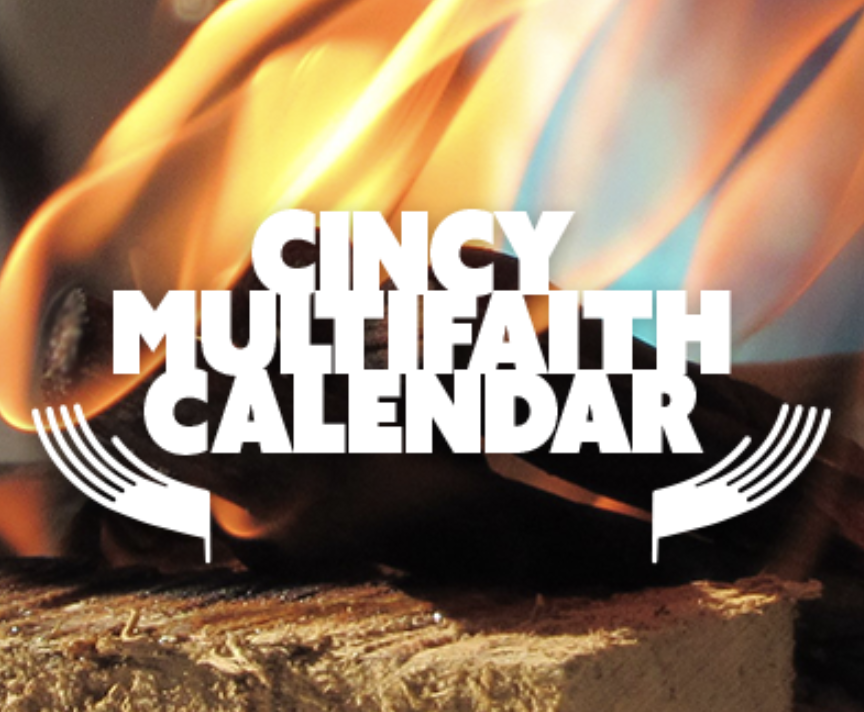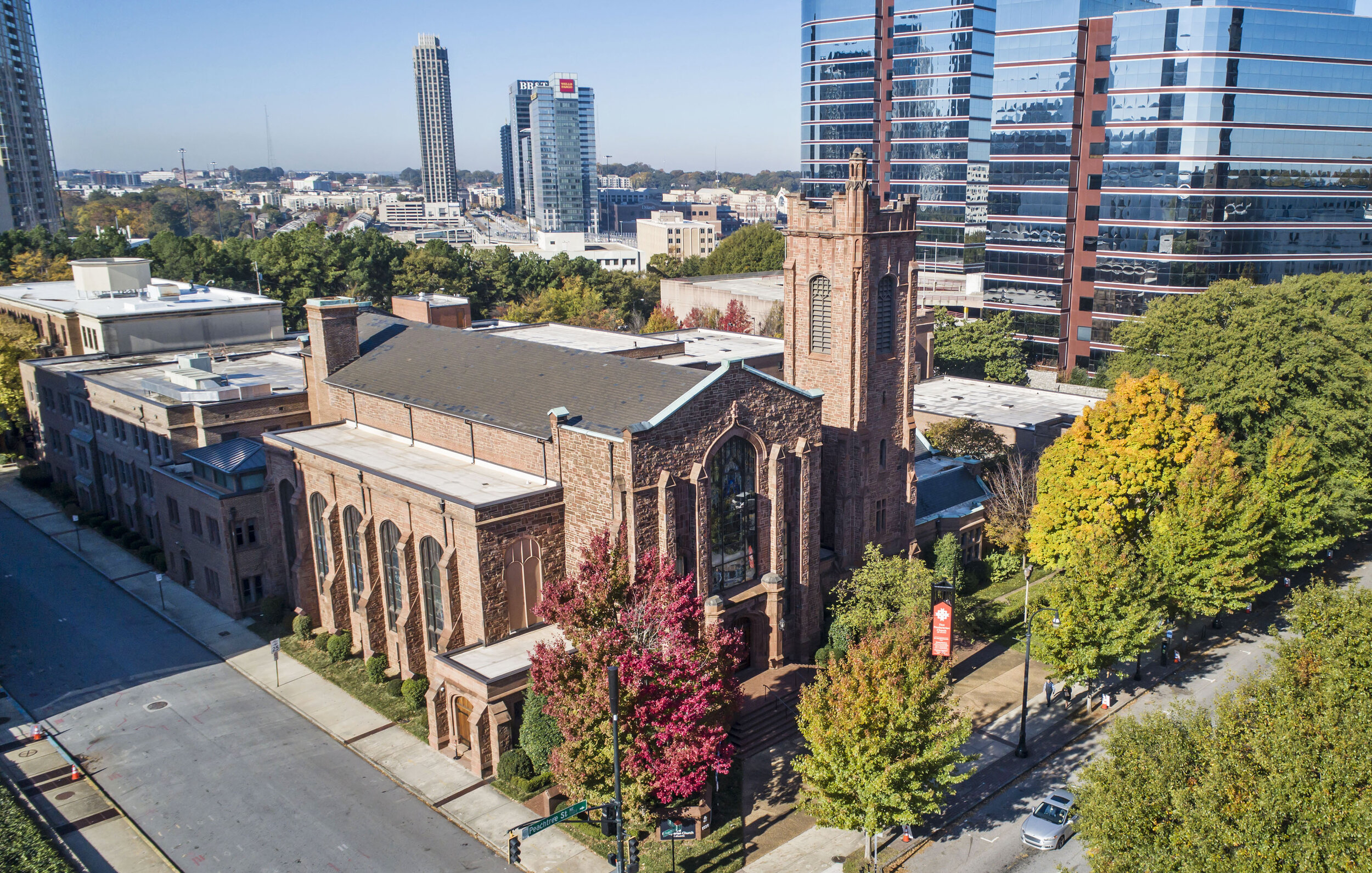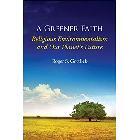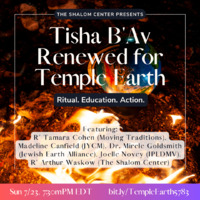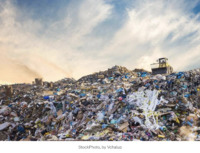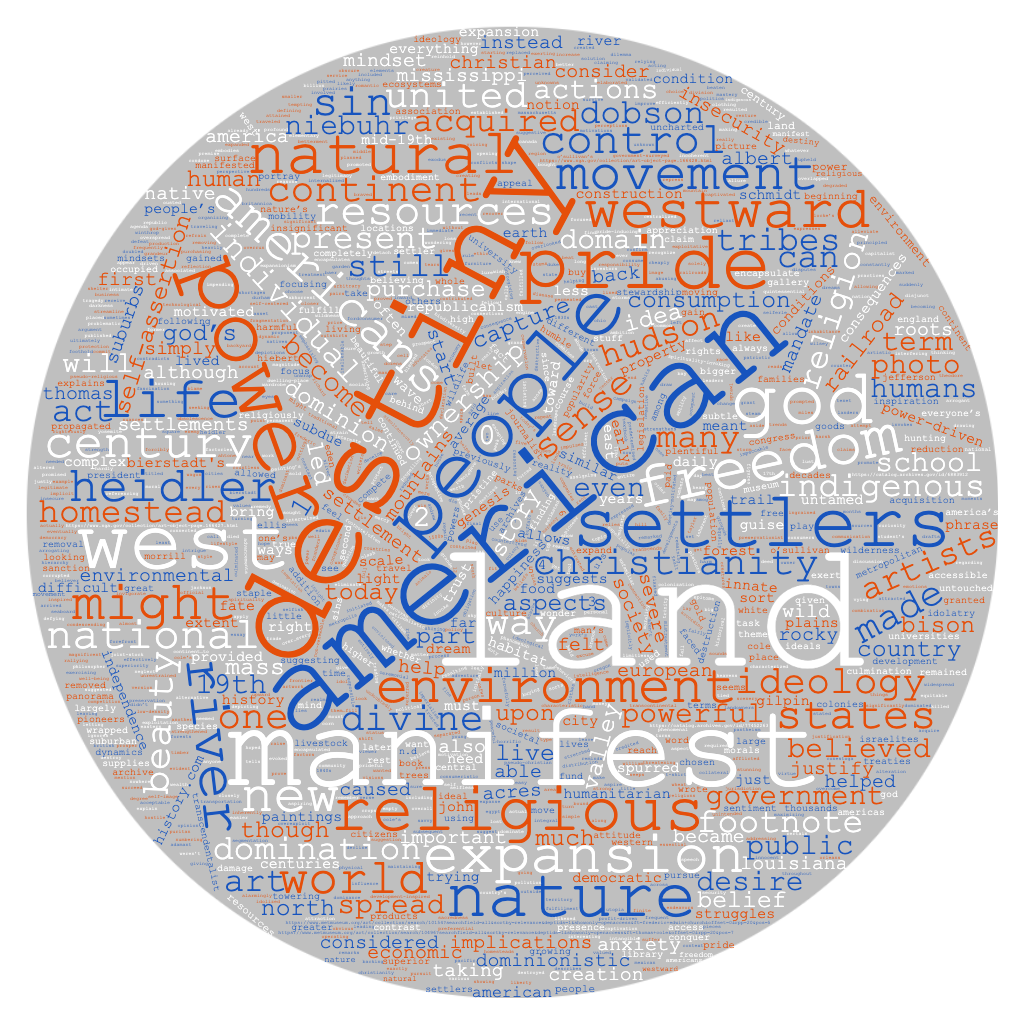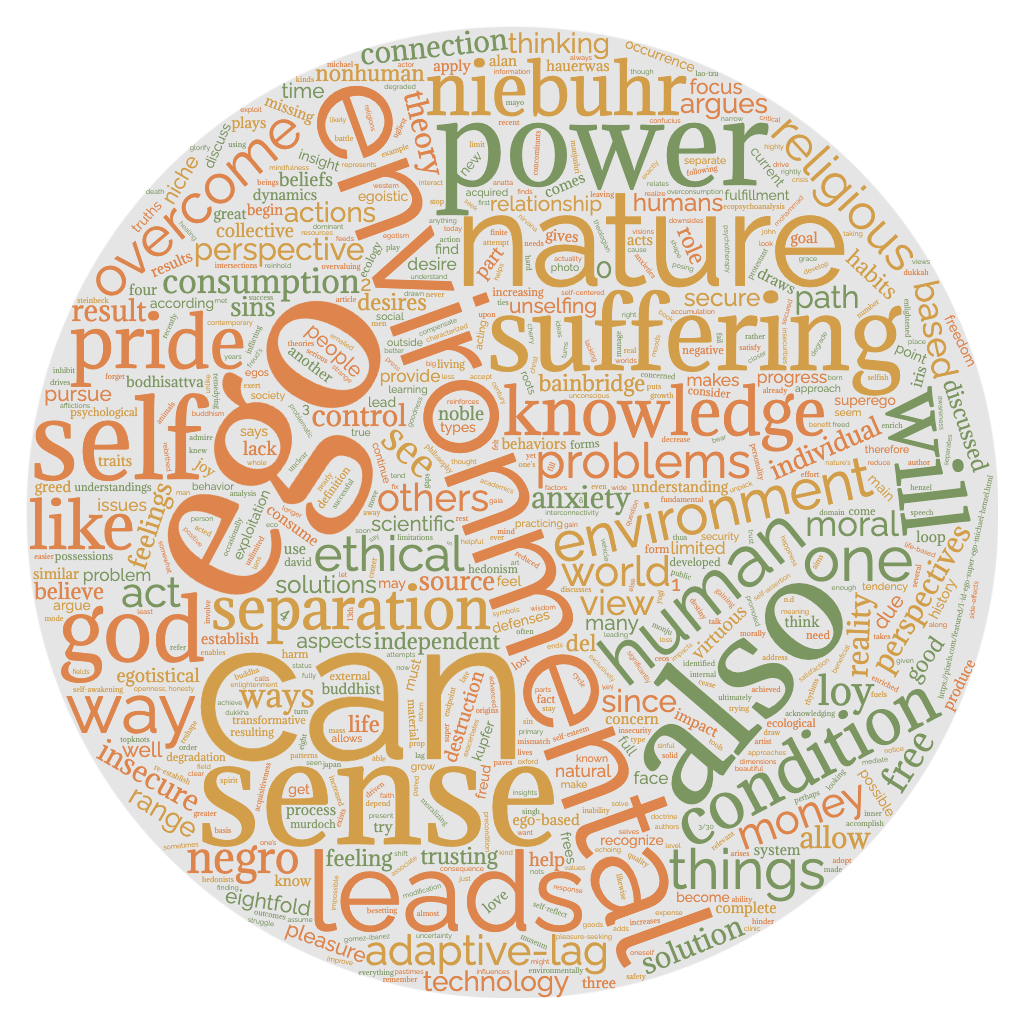Search
85 items
-
How faith-based organizations are restoring nature
Many ecosystems around the world, from forests to coral reefs, are in decline, victims of pollution, climate change and resource extraction.
But faith-based organizations are increasingly stepping in to help repair these natural spaces. From projects to save Ethiopia's forests to yogic farming in India to botanic gardens in Qatar, in many cases, religious leaders have become environmental influencers, championing nature-based solutions that experts say are crucial to saving the ecosystems that underpin human society. -
Faith Communities Environmental Network (FCEN)
We are a community of diverse faith traditions networking together to advance the environment & Eco-justice through:
- Advocating for environmental and climate action including racial, economic and social justice in all of our work
- Learning together and sharing best practices
- Building a diverse community that inspires hope and action to protect the interdependent web of life -
The Cape Cod Climate Change Collaborative
Established in 2016, the Cape Cod Climate Change Collaborative is a coalition of Cape and Islands-based organizations, businesses and citizens whose mission is to unite available knowledge, resources, talent and tools to mitigate climate change impacts on Cape Cod, reduce greenhouse gas emissions, and work toward achieving “net zero”-based goals for the Cape & Islands. We seek to create conditions to foster innovative, feasible, cross-sector solutions to the climate crisis.
Board members include community leaders from across the region representing organizations such as the Association to Preserve Cape Cod, Cape Air, Cape Light Compact, Center for Coastal Studies, Friends of Pleasant Bay, Outer Cape Energize, Woods Hole Research Center, and numerous faith, educational, non-profit and business entities. -
Soul Search with Dr. Meredith Lake
Soul Search explores contemporary religion and spirituality from the inside out — what we believe, how we express it, and the difference it makes in our lives.
Airs Sunday 6 pm Repeated: Wednesday 11 pm, Thursday 12pm.
You can listen to this podcast on platforms such as Apple Podcasts, Google Podcasts, and ABC Listen App. -
Sacred landscapes: religion and ecology around the Pacific
To mark World Environment Day, on June 5, we begin a new series on religion and ecology.
From the church forests of Ethiopia to the mountains of Chinese Daoism, the sea-scapes of Pacific theology to the forest monasteries of Theravadin Buddhism, the three-part series of sacred landscapes will explore how religion and spirituality might matter in the Anthropocene. How do the places we love shape our sense of the sacred? And how are our spiritual lives nurtured by the bush, the mountains —or even the sea?
In the first episode, Mary Evelyn Tucker, co-founder and director of the Forum on Religion and Ecology at Yale University introduces us to the series.
We also hear from Rev Dr Jione Havea, a pastor from Tonga about what it means to belong to the islands and to their seas. Rev Havea works at the forefront of postcolonial hermeneutics and Pasifika theology. His books include ‘Indigenous Australia and the Unfinished Business of Theology’. -
The Greening of the Federated Church of Orleans
The church began in 1646 – That year Pilgrim families from Plymouth Colony moved across the Bay to settle on Cape Cod, and some of the group ended up in today’s Orleans. They quickly established regular patterns of worship and fellowship, and eventually, in 1718, they built their meetinghouse on the site of today’s church – next to the cemetery, on the road to Nauset Beach.
August 2016 – The church started a new green journey. Federated Church's 10-person Care for Creation Team (aka C4C) began its work. It soon adopted the UCC “Green Congregation Challenge.” Ten months later the church had completed enough environmental-friendly steps in the Challenge’s Level One to be recognized by the UCC Mass. Conference's annual gathering as a “Green Congregation.”
Now (March 2018) – We anticipate completing enough additional steps to be recognized in June as a Level Two “Green Congregation.” We hope to complete Level Three next year! -
Solstice Celebration 2021
June 20, 7:00 PM ET
FREE EVENT — Registration Required!
From time immemorial, humans have honored the winter and summer solstices, as sacred and rich times, to align our personal and collective lives with the movement of celestial bodies. Some of us are heading into the darkness of winter while others are headed into summer and longer days. Wherever you are, the solstice is a planetary event.
A solstice occurs when the Sun reaches its most northerly or southerly excursion relative to the equator. Two solstices occur annually, around June 21 and December 21.
The term solstice can also be used in a broader sense, as the day when this event occurs. The day of a solstice in both hemispheres has either the most sunlight of the year (summer solstice) or the least sunlight of the year (winter solstice) for any place other than the Equator, where the days and nights are equal in length all through the year.
Here’s how we’ll celebrate:
• Experience live music
• Express and be moved
• Awaken your senses
• Discover new insights
• Connect with others across the globe
• Celebrate the Sun!
-
The Story of Stuff (Documentary)
The Story of Stuff is a short animated documentary about the lifecycle of material goods. The documentary is critical of excessive consumerism and promotes sustainability.
Filmmaker Annie Leonard wrote and narrated the film, which was funded by Tides Foundation, Funders Workgroup for Sustainable Production and Consumption, Free Range Studios and other foundations. Free Range Studios also produced the documentary, which was first launched online on December 4, 2007.
The documentary is used in elementary schools, arts programs, and economics classes as well as places of worship and corporate sustainability trainings. By February 2009, it had been seen in 228 countries and territories. According to the Los Angeles Times as of July 2010, the film had been translated into 15 languages and had been viewed by over 12 million people. -
The Story of Stuff Project
The Story of Stuff Project is:
Community-Minded
Our global, online Community of over 1 million Changemakers includes parents, community leaders, teachers and students, people of faith, entrepreneurs, scientists and others interested in creating a more healthy and just world. The interests and needs of our Community members deeply informs our work, and your passion and support enable our small team to have an outsized impact.
Solutions-Focused
We know all about the problems — from climate change to income inequality to political corruption. Our movies and other media focus instead on the big, exciting innovations driving the environmental and social change we need, as well as the little things individuals and communities can do to make a difference. We call it ‘Growing Solutions’.
Action-Oriented
We believe that dramatically increasing civic participation — not just refining our consumer choices — is the key to unlocking the profound challenges we face. Our four-week Citizen Muscle Boot Camp program equips participants with the basic skills they need to organize and lead a local project. And our campaigns provide diverse, engaging opportunities for our Community members to get involved, from the global level down to where they live and work. -
Patagonia's Environmental Activism Page
From mission statements to multimedia resources to annual reports, this page displays projects essential to Patagonia's sustainability efforts as a business as well as an environmentalist community. The site can serve as an inspiration template for organizations and businesses when seeking ideas for storytelling and communications with a wider audience. -
The Hidden Words of Bahá’u’lláh
A collection of spiritual teachings which is intended for all religious persuasions and those who seek a spiritual life. These meditational verses which were composed by Baha'u'allah, about the year 1858, while in exile to Iraq, explore the relationship between God and man. -
The U.S. Baha'i Office of Public Affairs
The Office of Public Affairs for the Baha’is of the United States was founded in 1985 to represent the American Baha’i community on the national stage.
Today, we collaborate with governmental and non-governmental organizations, individuals, and groups to advance thought around our focus areas, which currently comprise racial unity & justice, the environment, economic justice, human rights, the role of media in society, and gender equality & the advancement of women.
Our Office operates under the auspices of the National Spiritual Assembly of the Baha’is of the United States, the elected governing body of the American Baha’i community. -
Interfaith Rainforest Initiative (IRI) Campaign Videos
The Interfaith Rainforest Initiative (IRI) creates artistic and well-produced videos that accompany their programs on climate change education and awareness-raising in branch offices around the world.
These videos are great resources for those looking for multimedia inspirations that amplify sustainability communications efforts. -
Faith for Earth: A Call for Action
This book was first published at the beginning of the twenty-first century. A joint project of the United Nations Environment Programme and the Interfaith Partnership for the Environment, it was titled Earth and Faith: A Book of Reflection for Action. The partners printed tens of thousands of copies and gave them to schools, congregations, and communities throughout the
world. The book described the growing threats to our planet’s life support systems, the reverence all faiths share for life on Earth, and the responsibility that people have to future generations. -
Cincy MultiFaith Calendar
The Cincy MultiFaith Calendar empowers multi-faith learning and experiences through sharing traditions celebrated by different faiths with the wider public.
"This project was inspired by the inaugural Cincinnati Festival of Faiths held on June 24th, 2018, on the campus of Xavier University. That amazing event, which attracted 25 faith communities representing 13 world religions, was the most inclusive gathering of faith traditions ever assembled in the region’s history. Within days of that historic event, ideas for more multi-faith learning and experiences emerged, among them the idea of producing a multi-faith calendar. The purpose and hope of the calendar are that people of different faith traditions, or without a faith tradition, might learn more about one another. We all hold the hope that we could create a tool to help open the eyes of young people who could understand one another and break down those silos that segregate our world." -
Zoom Events: Greening the Bible
The goal of this short course is to read the Bible afresh: to reinterpret texts of terror (for other creatures) and to reclaim passages that show the importance and agency of nonhuman persons. It is intended as a tool for forming earth-inclusive Christians. -
Profile: EquaSion (Equality, Spirituality, Inclusion)
EquaSion, formerly known as the Bridges of Faith Trialogue, is a non-partisan civic organization founded upon interfaith dialogue that works to develop educational and community service programming to foster greater understanding, respect, compassion, inclusion, and engagement for all people and faith communities in Greater Cincinnati and beyond. -
Sustainable Consumption Research and Action Initiative (SCORAI)
The Sustainable Consumption Research and Action Initiative (SCORAI) is a knowledge network of professionals working at the interface of material consumption, human well-being, and technological and cultural change. We aim to foster a transition beyond the currently dominant consumer society. SCORAI provides a forum for scholars and practitioners striving to understand the drivers of the consumerist economy in affluent technological societies; to formulate and analyze options for post-consumerist lifestyles, social institutions, and economic systems; and to provide the knowledge for emergent grassroots innovations, social movements, and public policies. -
A Greener Faith: Religious Environmentalism and Our Planet's Future
Roger S. Gottlieb outlines principles of religious environmentalism and its implications for social and political issues. Gottlieb addresses issues of consumerism and fundamentalism while offering the perspective of religious environmentalism to guide how we should treat other beings. Through these discussions, Gottlieb proposes his dream for the future of our world. -
Environmental Sustainability in Islam
"Islamic beliefs, traditions and values provide an effective and comprehensive solution to the current environmental challenges faced by the human race. Islam has a rich tradition of highlighting the importance of environmental protection and conservation of natural resources. According to Islamic law, the basic elements of nature – land, water, fire, forest, and light – belong to all living things, not just human beings.
The Holy Qur’an and Sunnah are a guiding light to promote sustainable development in Islamic countries as well as around the world. Allah (Subhanahu Wa Ta’ala) commands human beings to avoid doing mischief and wasting resources as these acts cause degradation of the environment. The privilege to exploit natural resources was given to the mankind on a guardianship basis, which implies the right to use another person’s property on the promise that it will not be damaged or destroyed." -
Tisha B'Av Renewed for Temple Earth
"To start with what is new yet ancient: The Shalom Center welcomes you to the sad obligation to mourn for the continuing destruction of our universal Temple Earth, just days before Tisha B’Av, and to bring active hope to protect and heal the universal Temple of all life on Earth.
We will gather by Zoom at 7:30pm Eastern on Sunday, July 23, to hear chants in English, created as a 'Lament for Earth' by Moving Tradition’s Rabbi Tamara Cohen, newly honored by the Covenant Foundation for her innovative work in Jewish education; suggestions for action to protect Temple Earth by The Shalom Center’s Rabbi Arthur Waskow; reflections on the unique role Jews have in showing up for climate justice by Jewish Youth Climate Movement’s Madeline Canfield; songs and teachings of hope and determination by Interfaith Power & Light (DC.MD.NoVA)’s Joelle Novey; and a call for specific pre-Tisha B’Av actions by Jewish Earth Alliance’s Dr. Mirele Goldsmith. A complete list of organizational co-sponsors and full speaker biographies can be found below the registration form at the bottom of this page." -
Stop getting your modest clothes from fast fashion brands
"The hijab and modest fashion are not immune from the global mainstream shift to fast fashion. Ironically, in light of celebrating diversity and inclusivity, fast fashion businesses have created new niches for underserved audiences, including the Muslim community. Often these businesses outsource production to Muslim majority countries in the Global South. Here garment workers are exploited for less than a living wage..." -
Household Carbon Footprint Calculator
This interactive resource allows the user to input information on their housing situation and energy usage to calculate their estimated carbon footprint. It can show you where the most waste is and any possible ways to reduce the carbon footprint. -
Manifest Destiny: The American Dream or an Ecological Crisis?
This chapter from the student-written book "Emerging Perspectives on Religion and Environmental Values in America" explores the history of colonial expansion and the concept of manifest destiny in the US. It examines the environmental impacts as well as the religious motivations behind this course of action. Below is the first paragraph of the chapter to introduce the discussion.
"A quintessential part of the “American dream” is freedom. Whether it be freedom of religion, freedom of speech, or simply freedom to pursue one’s own dreams, Americans have always idolized the United States as a sort of utopia for individual freedom. 'Manifest destiny' is a mindset that embodies this belief. A staple term in every elementary, middle, and high school student’s American history textbook, it might be considered the epitome of what it meant to be American at the start of American imperialism. The idea of manifest destiny gained popularity in the mid-19th century and was built upon the notion of freedom. Advocates for manifest destiny believed that Americans were free, even bound by fate, to conquer the North American continent and expand the realm of democratic republicanism and Christianity. Under the guise of religious, political, and economic motivations, manifest destiny allowed Americans to pursue the 'American dream' and subdue the 'wild west.' The environmental and humanitarian implications of manifest destiny were frequently overlooked or not considered, resulting in ideology that still today seeps into our behaviors and perceptions regarding domination and superiority." -
The Consequences of the Ego and the Potential of Unselfing
This chapter from the student-written book “Emerging Perspectives on Religion and Environmental Values in America” explores consumption, human ego, and the relationship between these and our environment. It discusses human nature and how we interact with each other, technology, and nature. Below is the first paragraph of the chapter to introduce the discussion.
"Consumption is one of the favorite pastimes of our developed society, but it is also the source of many environmental problems. As technology has advanced, our society and economy have developed into one dependent on the mass consumption of things. Our habits of mass consumption have acted as a vehicle of destruction by increasing the amount of resources we use and waste we produce, leaving parts of our environment severely degraded. As a result, the people who have more and seem to be successful make more environmental impact, while the environmental consequences of their actions tend to be felt by the have nots. Our symbols of success that we prop up seem to be part of the problem as they have serious environmental downsides, and even though we recognize these downsides we continue to glorify consumptive habits that are destructive. But have you ever considered the roots of our need to consume?"

